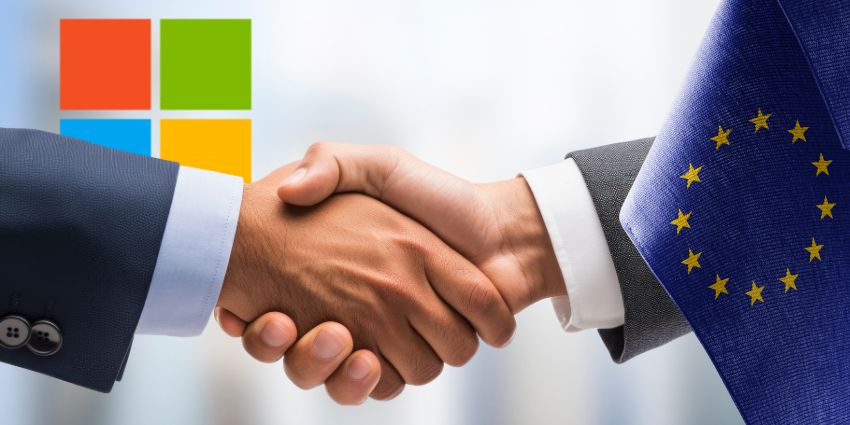Microsoft’s case with the EU over its bundling of Teams appears to be nearing the end of its years-long battle.
Although it has been a long time coming, with Microsoft having made changes as far back as 2023 to try to resolve the case, the latest development shows a concession that looks set to help it avoid a large antitrust fine.
The EU accepted Microsoft’s plan to unbundle Teams from Office. This means Teams will now have to be sold separately from the Office 365 and Microsoft 365 licenses.
Beyond the unbundling, the ruling has competitors feeling optimistic, as the agreement also states Microsoft must do more to improve interoperability, opening the door for rivals.
The Terms of Microsoft Teams Unbundling
The impending agreement comes after a years-long battle in Europe with the EU.
The case stems from a 2020 complaint from Slack, claiming “Microsoft has illegally tied its Teams product into its market-dominant Office productivity suite, force installing it for millions, blocking its removal, and hiding the true cost to enterprise customers.” The EU and Microsoft have since been locked in a back-and-forth.
Microsoft previously offered some modifications to its suite as a proposal to settle the case, including unbundling Teams from Office in an attempt to head off the antitrust probe shortly after it was opened by the EU two years ago. Yet the proposals did not satisfy the EU.
This is because Microsoft’s plans for Teams-less pricing would have resulted in an overall higher price for the combination of suites and Teams when purchased together, rendering Europe’s ruling largely ineffective.
Now, the conditions of this deal stipulate that Microsoft must sell Teams-less packages for less to reflect the removal of its online collaboration software.
This latest concession represents progress in Microsoft’s efforts to work with regulators to end the case.
Microsoft’s commitments agreed here could be in force for up to 10 years, with fines of up to 10% of annual global revenues should it fail to abide by them.
The Competitors’ Edge
This latest proposal by Microsoft, which looks set to be approved, was first revealed in May.
In addition to the unbundling, Microsoft appears ready to open up some of the red tape to improve interoperability between its platform and competitors.
Since then, the EU has consulted with competitors on the proposal, with reports stating that no major concerns were raised following the proposal to unbundle Teams from the rest of the Microsoft package.
This could be the final step required to resolve the complaint.
Such an interoperability concession could go beyond the initial complaint levied by Slack.
Rivals may now have an easier time pitching their tools to enterprise customers who are already heavily invested in Microsoft’s environment.
For enterprises, this change could make it easier and more appealing to adopt “best-of-breed” collaboration solutions, encouraging genuine innovation and reducing the friction of switching or running hybrid UC environments.
What the Deal Means for the Market
As Microsoft moves to put the EU case behind it, the impact will reverberate across the entire unified communications and collaboration ecosystem.
No longer able to bundle Teams as a default element within Office 365, Microsoft’s competitors like Slack believe they can now compete on a more level playing field.
Crucially, the added commitment to interoperability has the potential to fundamentally change how software ecosystems develop in Europe and beyond.
If Microsoft fulfills its promises, rival platforms could integrate more effectively with tools like Outlook and SharePoint, finally granting enterprise users flexibility that previously seemed out of reach.
For customers, this shift should translate into a broader range of options and, potentially, more attractive pricing structures as vendors redouble efforts to differentiate their offerings.
Ultimately, the settlement looks set to draw one of big tech’s longest-running antitrust battles to a close—but its ripple effects may just be getting started.







